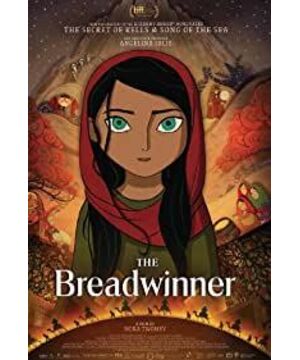Foreword: It is really strange to write a heavy film review on June 1, but why do you feel sorry if you don’t write it?
The cartoonish salon style of Irish animation is consistent, with obvious joy and melancholy running through it as the undertones. Add a dual story narrative to it, and it's exquisite. The reality is the first. Against the background of the Afghan war, the protagonist Pavana disguised himself as a woman to survive. The imagination is the second. The beliefs of the Pashtun people and ancient myths seem to give the people faith and strength.
There is no denying that this is a good movie and a good reality story. The 18-year-old war, from my birth to the present when I went to university, on average, the important milestones of my life are all spent in the background described in the movie, the war in Afghanistan, and the same is true for all of you. When we are caught up in our own troubles and joys every day, when we are living our lives in a normal way, they are on the other side of the world fighting against their destiny every day for their livelihood and family reunion. Compared with mental pain, it is true that physical pain is more unbearable for me. From this level. Good movies do slowly expand cognitive boundaries.
And the female consciousness and self-consciousness of the film undoubtedly permeate the structure of the whole story: women suffer from ubiquitous male-dominated violence. The means of survival is simply to be a man, or to marry a man and depend on him. Therefore, the female discourse presented in the film is actually based on the absence of women. Only by giving up your identity as a woman can you be free. It was gender-playing that gave Parwana the opportunity to grow in her heart and awaken her consciousness, and it also allowed her to save her father. There are irreparable cracks in the female narrative. When she confesses her identity as a girl, all that awaits her is fear and helplessness. ending. "
Inexplicably, I want to end with 996 and Lying Flat, which I have been thinking about recently, which is what the protagonist Pavana said: "People are priceless treasures." But you can imitate one sentence, people are also the cheapest burden. For the country of Afghanistan in the film, men are priceless treasures and women are the cheapest burden.
On the other hand, as a story, that is, in the imaginary narrative, the image of the hero Suleiman as a spiritual self is also male. Although the half-illustration and half-shadow puppet shows the exotic Afghan style, the story also ends with a depressing ending. bundle. At the end of the story, Elephant King may be a synonym for the war. After listening to his narration, I let him go, but the reality is the exact opposite.
"He picked up a toy and blew it up and that was the end."
View more about The Breadwinner reviews











